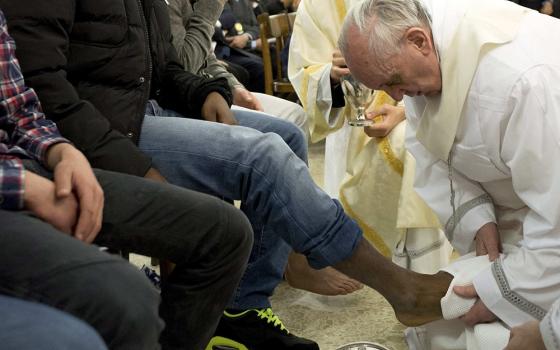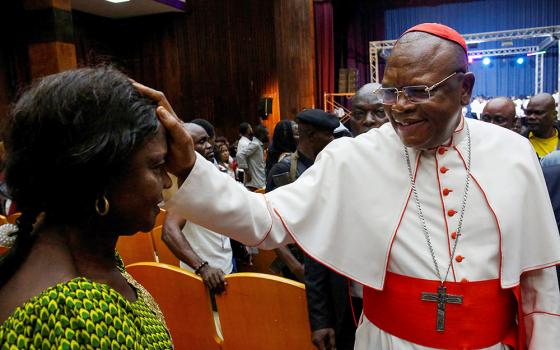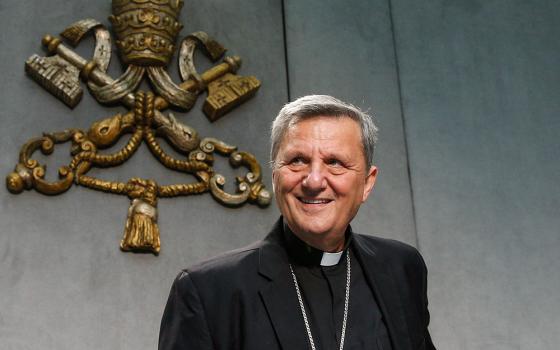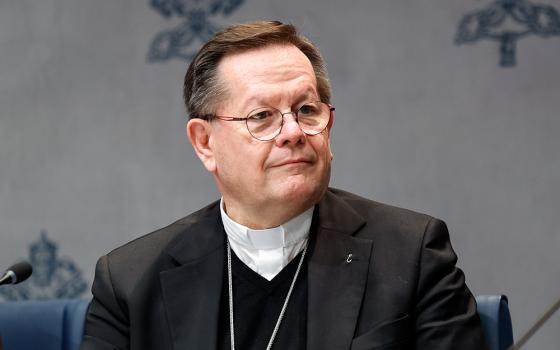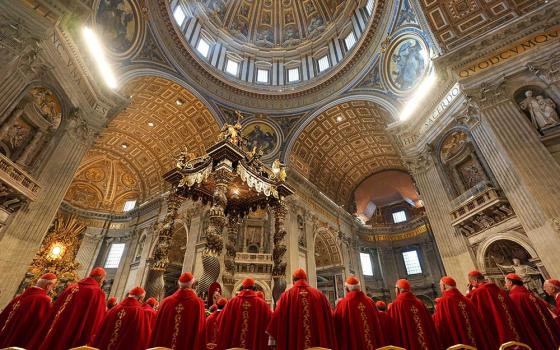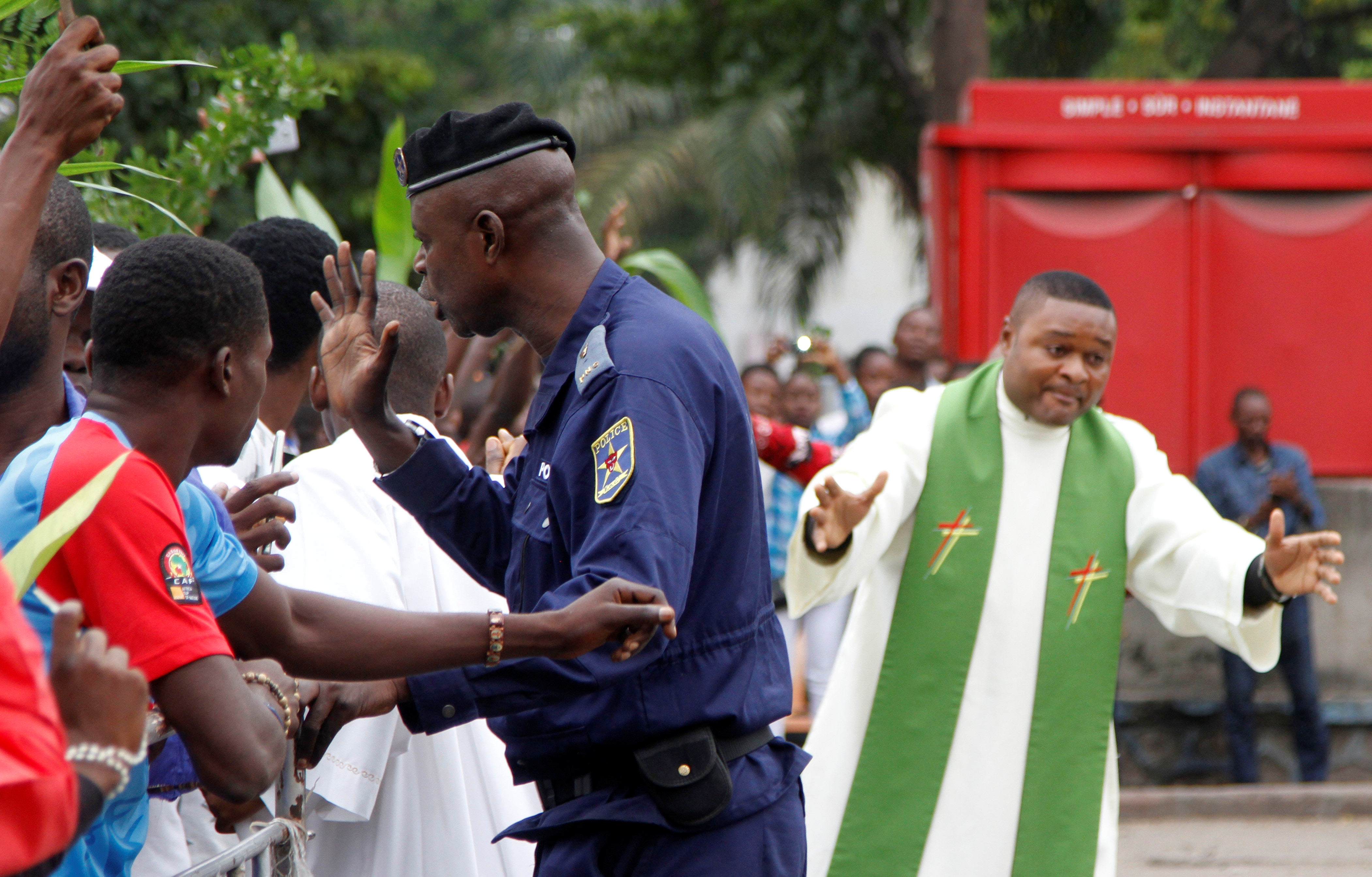
Riot police attempt to block a priest and demonstrators during a protest organized by Catholic activists in Kinshasa, Congo. At least six people were killed during demonstrations across the country against delayed elections and Congolese President Joseph Kabila. (CNS/Kenny Katombe, Reuters)
The Congolese bishops' conference defended its "engagement in actions affecting politics" in a Feb. 1 website statement, following church talks with a delegation from the Southern African Development Community.
"The church here is often asked to act as arbitrator or reconciler, to enable politicians to meet and discuss questions about our national life," the bishops said. They also said they were obliged to defend the common good.
"The church has been given a mission to testify to Christ and the Gospel. If it stays silent, abstains and distances itself from politics ... it will no longer be God's witness and instrument," the bishops said.
Their statement was seen as a response to a rare Jan. 26 press conference by Congolese President Joseph Kabila, who criticized Catholic involvement in recent demonstrations and denied his security forces used violence against peaceful protests.
The bishops said the "religious and ethical dimension" of the church's mission belonged "in the public sphere," while its pastoral work also "leads it into political territory."
"The church has to challenge citizens, put them on guard against dangers and uncertainties, and call them to make choices which respect the human person," the bishops added.
"Christianity cannot fail to take an interest in humanity, and Christian engagement in history and politics is absolutely necessary. The church has a duty to help its faithful analyze the great social and moral questions."
In his Jan. 31 meeting with the Botswana-based SADC, the conference secretary-general, Msgr. Donatien Nshole Babula, said church leaders believed a solution of the Congo crisis rested with a December 2016 church-brokered accord that contained provisions for an election to replace Kabila. The Congolese leader's second and final term expired more than a year ago.
SADC officials said in a statement following the meeting that they urged the church to "continue its work for peace," and that the organization was deeply concerned at the "bloody repression" of Catholic protests across the country Dec. 31 and Jan. 21.
Human rights groups told Agence France-Presse Jan. 30 Congolese authorities had still not returned the bodies of seven demonstrators killed Jan. 21, mostly by police bullets, so relatives could "bury them with dignity."
Advertisement
The Rome-based Fides news agency reported Feb. 1 a group of assailants had broken into the Kinshasa residence of Cardinal Laurent Monsengwo Pasinya, who described Kabila's Jan. 26 press conference speech as "long-winded and useless."
It said bodyguards had detained one man, who had police and army identity papers.


